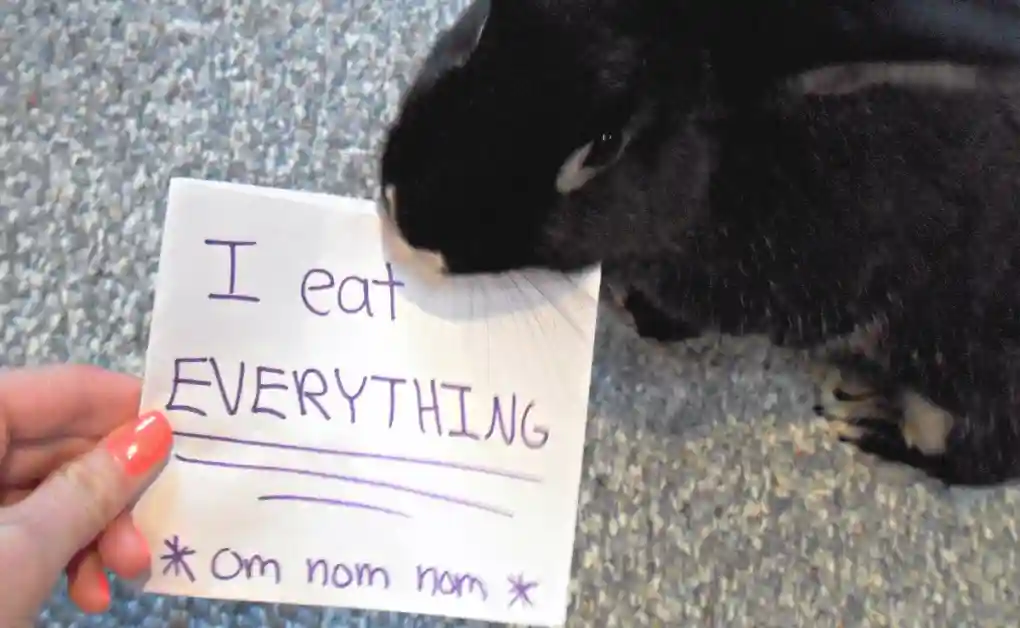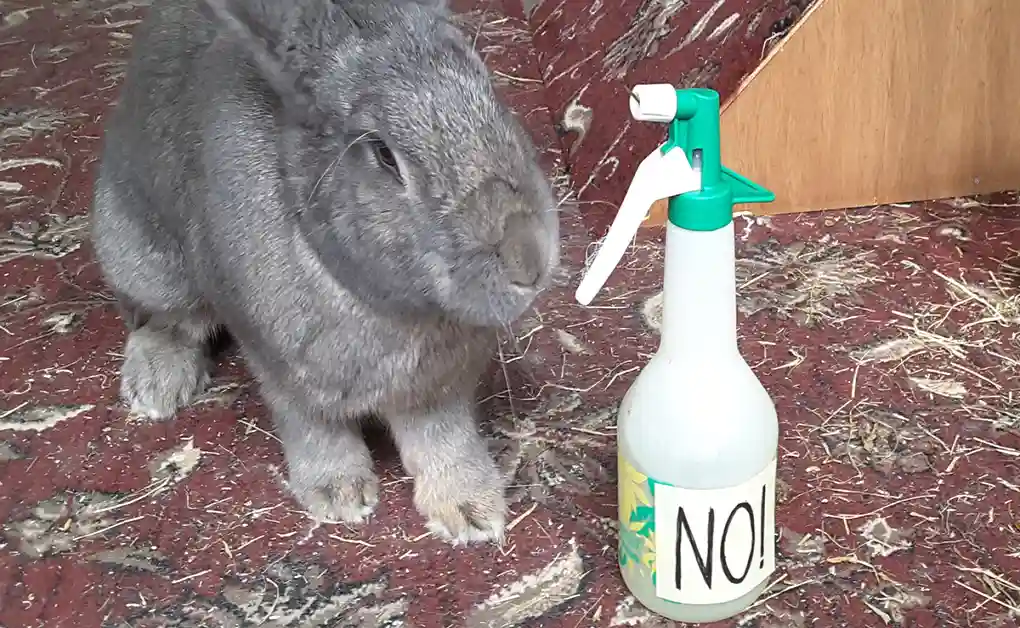How to use gentle discipling with your bunny
 Bunnies have strong natural instincts which you may need to learn to live with
Bunnies have strong natural instincts which you may need to learn to live with
Bunnies always seem to be up to something naughty. They find chewing on carpet, baseboards, and wallpaper irresistible, no matter how many chew toys you provide them. This can make relaxing with your bunny quite stressful as you battle with them to stop their destructive behavior.
Since you can’t bunny-proof your entire home, training becomes essential to prevent this unwanted damage and help control their behavior. Training will allow you to send a clear and consistent message that chewing or other undesirable behavior is unacceptable while guiding your bunny toward acceptable alternatives. By using gentle discipline and positive reinforcement, you can teach your bunny to prefer behaviors that you encourage.
Finding the appropriate level of discipline is crucial when trying to teach your bunny to change its behavior. Bunnies are social animals and can understand boundaries, however, using harsh training methods, such as punishment or shock tactics, can easily traumatize them. In fact, such tactics can make managing their behavior even more difficult, as your bunny may become suspicious or unfriendly toward you.
This guide will help you understand the appropriate level of discipline that avoids triggering unwanted behavior. This approach will allow you to maintain your bunny’s trust and encourage them to choose the acceptable alternatives you provide. If your bunny has decided that your home is on the menu and you need practical ways to stop this behavior, continue reading to discover which training methods would work best for your bunny.
Never Discipline your Bunny by Hitting, Shouting, or Clapping
It's important to understand that for bunnys discipline should not be punishment. Unlike cats and dogs, bunnies can respond negatively to physical punishment, and you should never strike or hurt your bunny. Even pushing them away forcefully from your furniture can trigger behavioral problems.
You should also avoid using scare tactics, such as shouting, clapping, or chasing, to deter your bunny from unwanted behaviors. Bunnies have very strong prey instincts, and these methods are likely to traumatize them. They may even injure themselves in a panic to escape.
We also do not recommend spraying your bunny with water as a training method. By the time you get close enough to spray them, especially if they see the water bottle you are holding, your bunny will likely be distracted and have already ceased their bad behavior. They won’t understand why you are being unkind, which could lead to confusion and fear.
The Correct Way to Discipline Your Bunny
The correct way to discipline your bunny is to say their name followed by a firm "NO!" Be consistent and use the same tone each time. Bunnies are intelligent animals and can learn to recognize simple words and commands.
Make sure you only discipline your bunny when you catch them in the act of doing something wrong. If you wait until after they have stopped, they won’t associate your scolding with their bad behavior and will not understand the reprimand. Most importantly, following the reprimand, guide them to an acceptable alternative you provide, such as a tasty chew toy or a cardboard box they can play with. While it may be tempting to lure them away with treats, you should avoid this, as they might think they’re being rewarded for the bad behavior, which would be counterproductive.
How to Give your Bunny a Time-out
If you can't encourage your bunny to stop unwanted behavior, you could try giving them a time-out. Your bunny will quickly learn that if their actions result in being isolated from enjoyable activities, they should be avoided.
Keep in mind that bunnies are easily frightened, so avoid chasing and catching them or abruptly scooping them up, as this can cause trauma and confusion. Instead, gently pick them up and move them to a quiet area of your home where they can be alone for a short period.
Make sure this isn’t their pen or night-time enclosure, as you don’t want them to associate being in those spaces with punishment. A brief time-out is sufficient as they will likely become bored quickly and forget why they are there. The key is to be consistent and repeat this process whenever bad behavior occurs until they learn the lesson.
 When no means no!
When no means no!
